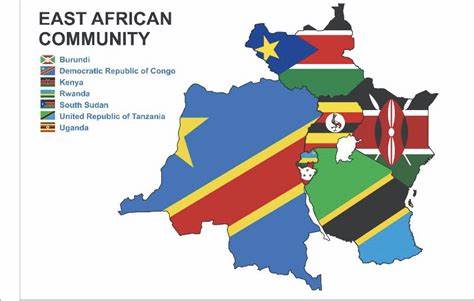The East African Community (EAC) is an intergovernmental organization in East Africa. The EAC’s membership consists of eight states, which include Kenya, Uganda, Tanzania, Rwanda, Burundi, the DRC, South Sudan, and Ethiopia. It was established by the treaty for the establishment of East Africa, signed by the first three states in 1999, which came into force in the year 2000.
Uganda enacted the Foreign Judgments (Reciprocal Enforcement) Act Chapter 10 on 20 February, 1961, this is an Act to make provision for the enforcement in Uganda of judgments given in foreign countries which accord reciprocal treatment to judgments given in Uganda, for facilitating the enforcement in foreign countries of judgments given in Uganda, and for other purposes in connection with the matters aforesaid.
The Enforcement of foreign judgments in Kenya is the subject of The Foreign Judgments (Reciprocal Enforcement) Act (Cap 43 of the Laws of Kenya). The objective of the Act is to make provision for enforcement of judgments given in countries outside Kenya which accord reciprocal treatment to judgments given in Kenya.
It should also be noted that In Tanzania Mainland, the enforcement of foreign judgments is governed primarily by the Tanzania Reciprocal Enforcement of Foreign Judgments Act, CAP 8; it is an Act to make provision for the reciprocal enforcement of judgments as between Mainland Tanzania and foreign countries and for other related matters.
The Black’s Law Dictionary, 8th Edition, 2004, pg.3980 defines the word ‘reciprocal’ to mean ‘directed by each toward the other or others. In international law, reciprocity means the right to equality and mutual respect between states
Article 44 of the treaty provides that ‘the execution of a judgment of the East African Court of Justice which imposes a pecuniary obligation on a person shall be governed by the rules of civil procedure in force in the Partner State in which the execution is to take place.
Similarly, under Article 32 of the treaty grants jurisdiction to the East African Court of Justice to handle and determine matters that arise from arbitration clauses in commercial contracts between parties that chooses to resolve the same before the courts.
The East African Community needs to pass a protocol for the enforcement of foreign judgments within the member states and in relation to other regional economic blocs to enhance inter and intra-regional trade and investments if we are to achieve the realisation of the East Africa community Integration.
Currently, the court in Uganda was cannot grant a judgment creditor seeking to enforce a foreign judgment against a debtor in a country where there is apparently no reciprocal arrangement with Uganda. In the case of Christopher Sales & Carol Sales v Attorney General Civil Suit No.91 of 2011 (unreported) Justice Eldard Mwangutsya (as he then was) considered the fact that the debtor could not just be left ‘stranded’ without a remedy having obtained a judgment from a country with a well-established legal systems and courts that are credible.
Be that as it may, Justice Eldard Mwangutsya (as he then was) departed from the cardinal principles espoused in the Act premised on the principle of reciprocity and went ahead to grant the recognition and enforcement of the USA judgment despite the lack of reciprocal arrangement. He noted that
“A judgment creditor armed with such a judgment should be allowed to realize the fruits of his judgment which should be afforded recognition by our courts in absence of a reciprocal arrangement.”
In a Kenyan case of Italframe Ltd v Meditaerranean Shipping Co. [1986] KLR 54 AT 62 it was held that the basic principle upon which the foreign judgments are enforced is reciprocity and the advantage to be gained there from. The court observation was made in the context of an application to register a foreign judgment under the foreign judgment (reciprocal enforcement) Act 1984.
While enforcing these judgments, three theories are looked at as seen in the Christopher sales case (supra). These Theories of Enforcement include, the Theory of Obligation: This theory suggests that a foreign judgment creates a debt or obligation that the enforcing court should recognize.
The Theory of Reciprocity: As mentioned earlier, this is a common basis where enforcement is granted if the originating country offers reciprocal treatment. And also the Doctrine of Comity: This principle emphasizes mutual respect and courtesy between nations and their judicial decisions.
Looking at the different countries in East Africa, there laws define all partner states as foreign countries, in the case of British American Tobacco (U) Ltd v. The Attorney General of the Republic of Uganda Case Number, REFERENCE NO. 7 OF 2017, The court held that the use of a foreign country to mean Kenya was a violation of the East Africa Community Treaty and therefore called for harmonising of Ugandan laws to capture the definition of the foreign country as per the treaty which means any other country other than East Africa.
In conclusion, in the Current situation, the enforcement of these laws relies heavily on the domestic laws of each member state. Therefore the reliance on diverse national laws can lead to inconsistencies and complexities in enforcing judgments across the EAC. Where there is a uniform protocol on this, it would promote greater legal certainty, facilitate cross-border transactions, and enhance the ease of doing business within the community.






















Discussion about this post